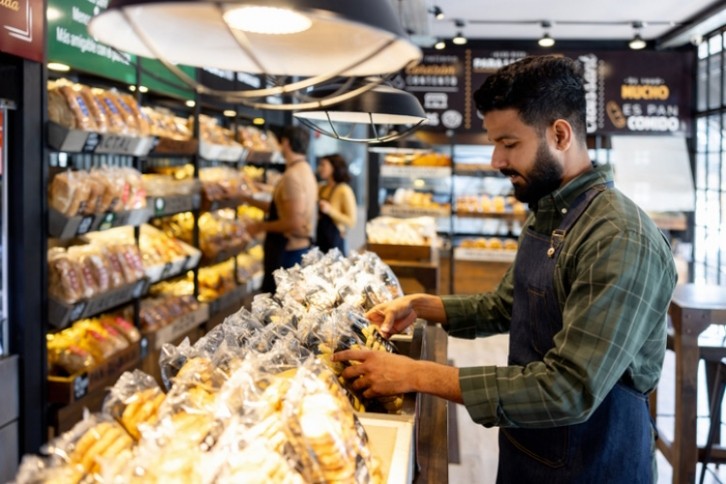How Grupo Bimbo’s presence has shaped India’s bakery market

The world’s largest bakery manufacturer has a robust global presence spanning over 30 countries across the Americas, Europe, Asia and Africa.
The company was founded by Don Lorenzo Servitje Sendra soon after World War II in 1945, with 34 employees and 10 trucks that delivered four products – cellophane wrapped sliced white bread in two sizes, rye bread and toasted bread – to the Mexican market. By the mid-1990s, Bimbo was selling more tortillas in the US than in Mexico. Today, the Mexican Stock Exchange-listed company has grown into the largest baking company in the world, with more than 100 brands, 227 bakeries across the globe and 151,000+ employees.
Don Lorenzo was Bimbo president until 1981 and board chairman until 1994. He died on February 3, 2017, at the age of 98. His son, Daniel Servitje, first become involved in the family business at the age of 16 in 1982 and was made CEO in 1997 and chairman in 2013. Today, he is estimated to have a personal wealth of $7.7bn.
After more than four decades with his family-owned business, on May1, Servitje passed on the CEO baton to Rafael Pamias, having built an impressive legacy.
“Serving our associates, customers, consumers, board members, shareholders and investors of this special company has been the privilege of my life,” he said.
“It has been thanks to all of you that we are eight times larger than we were in 1997 when I took over as CEO, having carried out 93 acquisitions in this period. We are the largest baking company in the world, with 227 bakeries, more than 151,000 associates in the 35 countries where we operate. Together, we have achieved an unimaginable growth while delivering solid results in each of our key metrics.”
Indian footprint
In a strategic move to tap into emerging markets, Bimbo slid into the Indian market by acquiring a 65% stake in Ready Roti in 2017, which was founded in 1993 and has a strong presence in New Delhi and its surrounding areas, selling approximately 150,000 loaves of bread daily.
The bolt-on marked Bimbo’s entry into one of the world’s fastest-growing bakery markets and set new industry standards in the region. Its presence challenged existing players to elevate their offerings, intensifying competition and prompting both local and regional companies to enhance their portfolios to remain competitive.
Bimbo’s investment in Ready Roti was the first case of foreign investment in an Indian bakery company, which Ramesh Mago, president of All India Bread Manufacturers Association, said was seen as a positive signal for the industry, suggesting it could stimulate further foreign investment and interest in the Indian bread sector.
Mago noted Bimbo’s entry is likely to act as a catalyst, encouraging other international players to explore opportunities within India’s growing bakery segment. He emphasizes that Bimbo's investment underscores the potential of the Indian market and could pave the way for additional foreign investments, which may lead to increased competition and innovation in the sector.
“Bread, rusk, cookies, buns, cakes, all are growing at the same rate,” he said.
In 2017, Bimbo then bought a 65% stake in Mumbai-based Harvest Gold, in a deal that valued the Indian bakery company at around Rs 340 crore ($50m). It went on to acquire Modern Foods from private equity firm Everstone Capital in 2021. A South Indian market leader, Modern Foods operated seven baking plants, which Bimbo said gave it access to a nationwide manufacturing and distribution network. And the same year, it snapped up Kitty Industries, the second-largest baking company in northern India.
Foreign investment
Since Grupo Bimbo’s entry into the Indian bakery market in 2017, there have been several notable foreign investments and developments in the sector:
In 2018, US donut brand Krispy Kreme expanded its presence in India with new stores and product offerings.
This was followed by Cargill’s strategic investment in India’s food sector, including the bakery segment, in 2019, by enhancing its production and distribution capabilities
French bakery chain Paul, known for its artisanal bread and pastries, entered the Indian market in 2019, another move to reflect the growing interest of international brands in India’s premium bakery segment.
As of June 2023, there were 21 Dunkin’ Donuts restaurants across six cities in India. The American coffeehouse chain first entered the market in April 2012 with a store located in New Delhi. Indian food service company Jubilant FoodWorks signed a master franchise agreement with Dunkin' Donuts in 2011 to operate the brand in India.
Lotus Biscoff was first launched in India 15 years ago and today, the region accounts for 0.2% of the company’s overall group sales revenue, which tipped the €1bn mark in 2023 to reach €1.06bn ($1.14bn). The Belgium company currently produces supply for the Indian market at its plant in Lembeke, with distribution conducted through a local partner.
Mondelez has been present in India for more than 75 years, running three production facilities to produce its well-known biscuit brands for the Asia, Middle East and Africa regions, which saw net revenue increased 4.6% last year to $7.08bn. Last year, Mondelez India Foods Private Limited announced a Rs16bn ($191.5m) investment earmarked over three years to upgrade its Sri City manufacturing facility in the state of Andhra Pradesh.
General Mills continues to invest in expanding its product range and market presence in India, as has Nestlé, including investments in local manufacturing and distribution capabilities.
Several smaller international and regional bakery brands have also entered the Indian market, focusing on artisanal and specialty bakery products.
These foreign investments reflect the increasing attractiveness of the Indian bakery market, driven by factors such as urbanization, rising disposable incomes and changing consumer preferences.
Strong growth
India’s bread market has been experiencing strong growth.
According to Statista, the sector is expected to grow by 8.13% annually from 2024 to 2028, with a revenue of $58.36bn in 2024 and a volume of 55.91bn kg by 2028. The average consumption per person is expected to be 33.1kg in 2024. The packaged bread category is largely constituted of white bread, with brown and other breads constituting less than quarter of the total sales. However, aligned with the global trend, Indian shoppers are increasingly focussing on their health and demanding items that are low in trans fat and high in multi-grains and whole wheat.
On the downside, India is known for its complex logistics and supply chain challenges, particularly in the bakery sector.
Bread is a perishable product, but an inadequate transportation infrastructure and unreliable supply chains can affect the freshness and availability of bread products. The vast and diverse geography of India means that reaching remote and rural areas can be challenging and costly, limiting market penetration.
It’s an essentially unorganized sector, with local vendors and small-scale producers holding a significant market share. These pose significant competition to larger, organized brands and attract consumers by offering lower priced goods. India also experiences periodic inflation, which affects the cost of goods and can erode purchasing power. Although bread has long been exempted from sales taxes, other baked goods, like rusks and cakes, face higher tax rates.
Pankaj Batra, MD of Delicious Foods, a bread manufacturer based in Bareilly, Uttar Pradesh, said even established companies like Ready Roti, Modern Bread and Britannia encounter significant hurdles when competing with smaller, unorganized units.
“Small-scale bakeries benefit from localized operations, which allow them to keep overheads and transportation costs low,” Batra said, adding major plants make about 30,000 to 50,000 loaves daily, while those in the unorganised sector produce less than 10,000.
“We are effectively competing against a sector where operational costs are lower. If the cost of automation is too high, achieving a return on investment becomes increasingly difficult.”
Addressing these challenges requires a strategic approach involving investment in supply chain improvements and market research to understand regional preferences. India’s diverse culinary preferences mean that bread consumption patterns vary significantly across regions.
Key local players
Parle, Britannia, Sunfeast and Haldiram are some of India’s biggest biscuit manufacturers, coined the ‘billionaire babies’ by Kantar’s Worldpanel 2024 Brand Footprint, which saw the leader (Parle) command eight million Consumer Reach Points – second only to Coca-Cola.
Britannia has the largest market share with a diverse portfolio that includes bread, cakes, biscuits and dairy products.
Parle is renowned for its popular biscuit brands like Parle-G, Hide & Seek and Monaco. The company has a strong presence in both rural and urban markets.
ITC also has a significant presence in the bakery segment its brand Sunfeast offering a variety of biscuits, cookies and cakes.
Surya Foods and Anmol Biscuits are also key players in the Indian bakery and cereals markets.
Following Grupo Bimbo’s acquisition, Ready Roti has strengthened its position in the organized bread segment, especially in the New Delhi region, while Krispy Kreme and Paul Bakery are also contributing to the organized sector's market share, although they represent a smaller fraction compared to major domestic players.
One of the key advantages of Bimbo’s footprint in India is its advanced supply chain and distribution capabilities. Addressing the logistical challenges inherent in the Indian market, Bimbo’s sophisticated network is dramatically enhancing the efficiency of packaged bread distribution across a broader geographic area, including both urban and semi-urban regions.
The Mexican company’s presence is also setting higher consumer expectations. As it introduces its growing range of global products to the local market, other Indian players are kept on their toes to equally enhance their offerings. Many have already invested in new technologies and marketing strategies to keep pace with Bimbo’s brand reputation.
Bimbo’s investment in India is not only transforming the local market but also set a precent for future foreign interest, highlighting the growth potential and attractiveness of India’s bakery industry. As Bimbo continues to integrate its global strategies with local market needs, the ripple effects are expected to resonate throughout the industry, influencing both competitors and consumers alike.














